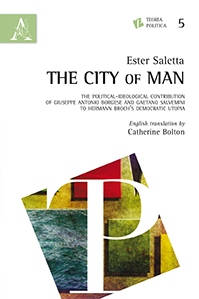The City of Man
The Political-ideological Contribution of Giuseppe Antonio Borgese and Gaetano Salvemini to Hermann Broch’s Democratic Utopia
Area 14 – Scienze politiche e sociali
Tweet
SINTESI
Between 1920 and 1940 the Nazi and Fascist totalitarian systems overwhelmed Europe, enchanting the masses with their dystopian pseudo-democratic ideology, chiefly philosophical, literary, and mythical in nature. They were countered by traditional, popular, partisan, and underground resistance, as well as groups of intellectuals and scholars, both American and European. The latter, exiled in the United States, planned a new liberal model in which democracy would once again be a value defending and safeguarding human rights and dignity in all their diversity. The City of Man is the anti–totalitarian Euro-American response of some of the leading cultural figures of the twentieth century, who did not limit themselves to observing the collapse of Europe and the debasement of the democratic principle, but presented an achievable liberal and anthropocentric utopia. Hermann Broch and Thomas Mann, Giuseppe Antonio Borgese and Gaetano Salvemini, Reinhold Niebuhr and William Allan Neilson were among the utopians who, in The City of Man, attempted to promote a Rooseveltian New Deal of democracy.
| pagine: | 152 |
| formato: | 14 x 21 |
| ISBN: | 978-88-548-8440-3 |
| data pubblicazione: | Ottobre 2015 |
| marchio editoriale: | Aracne |
| collana: | Teoria politica | 5 |

SINTESI













